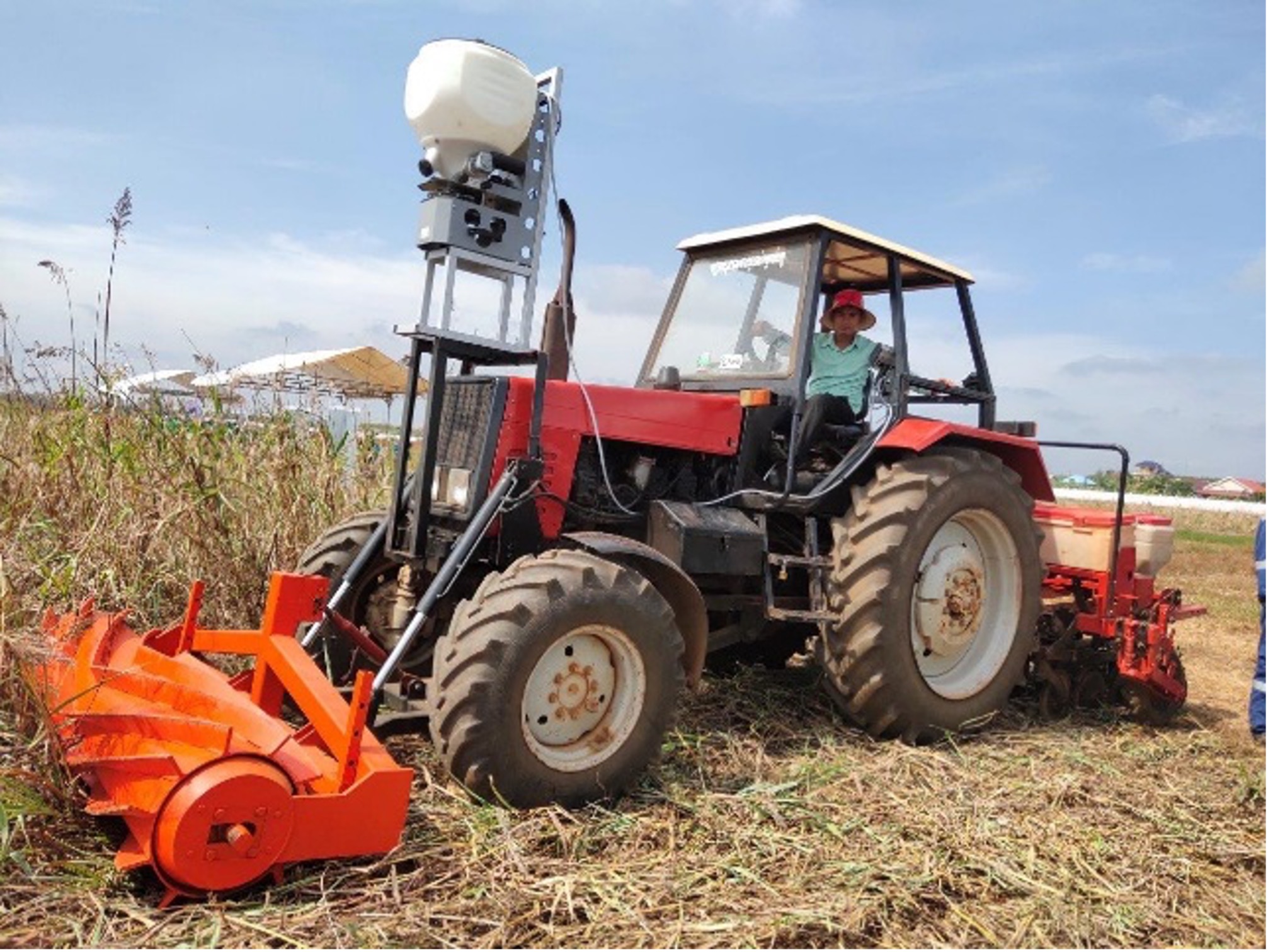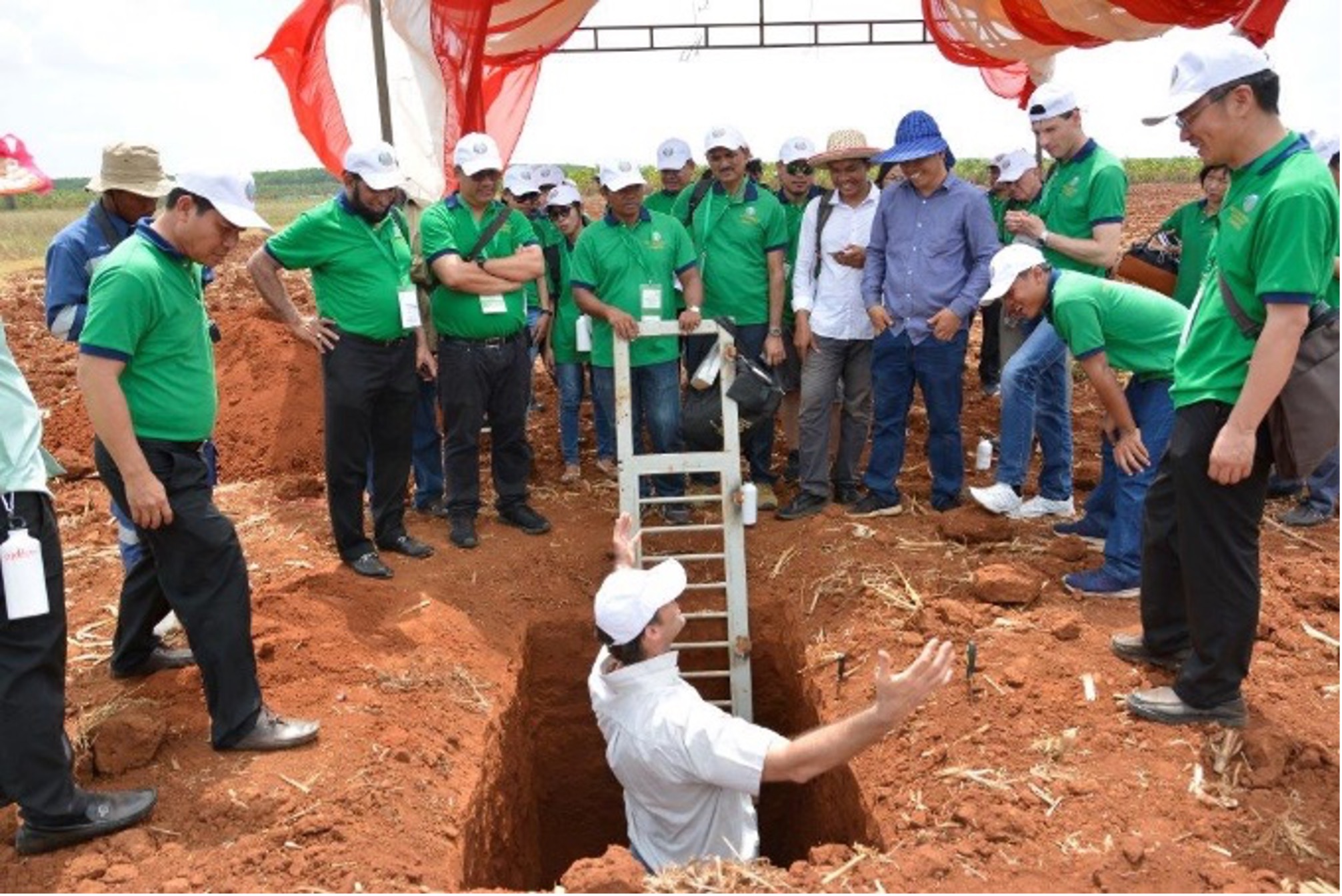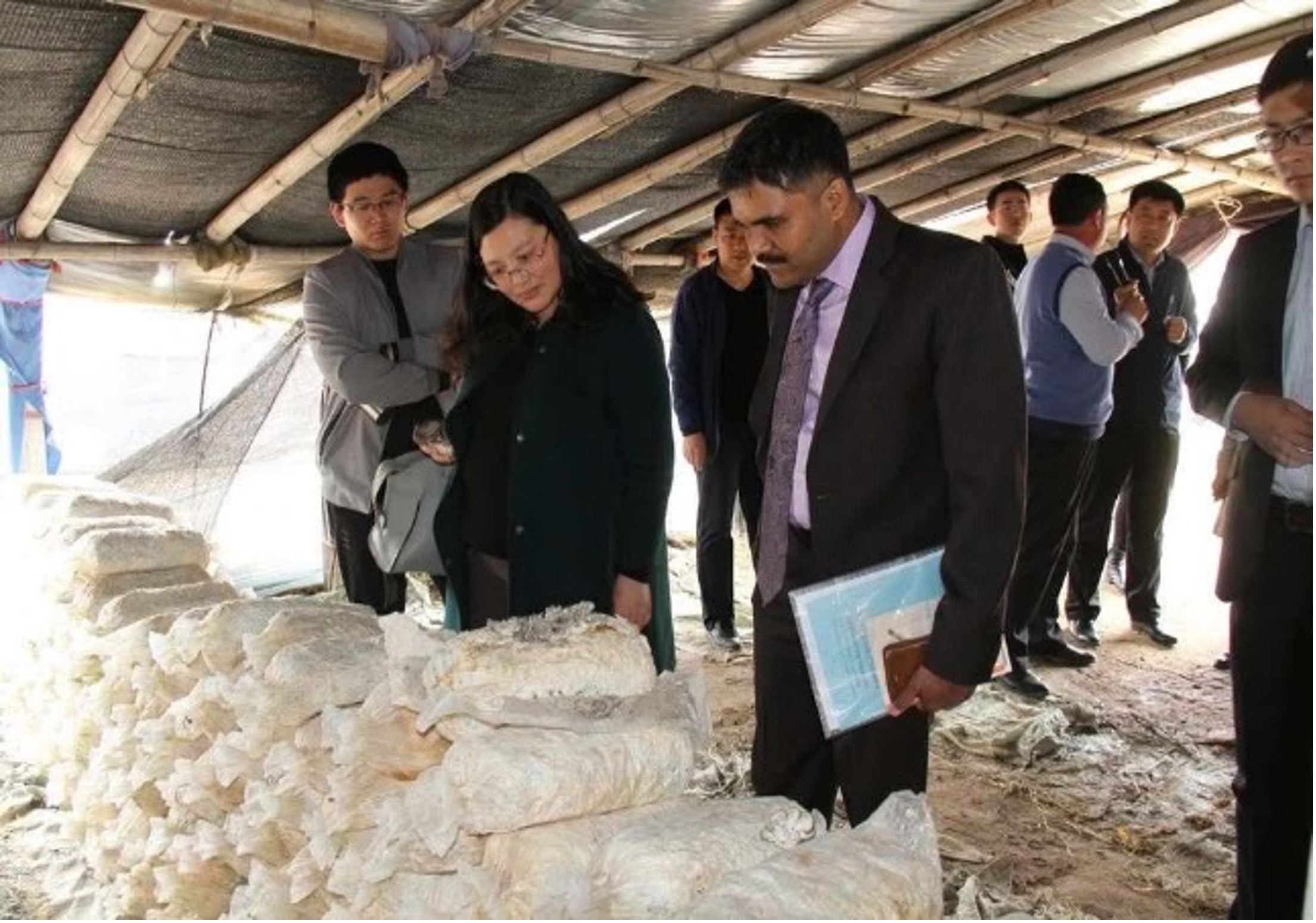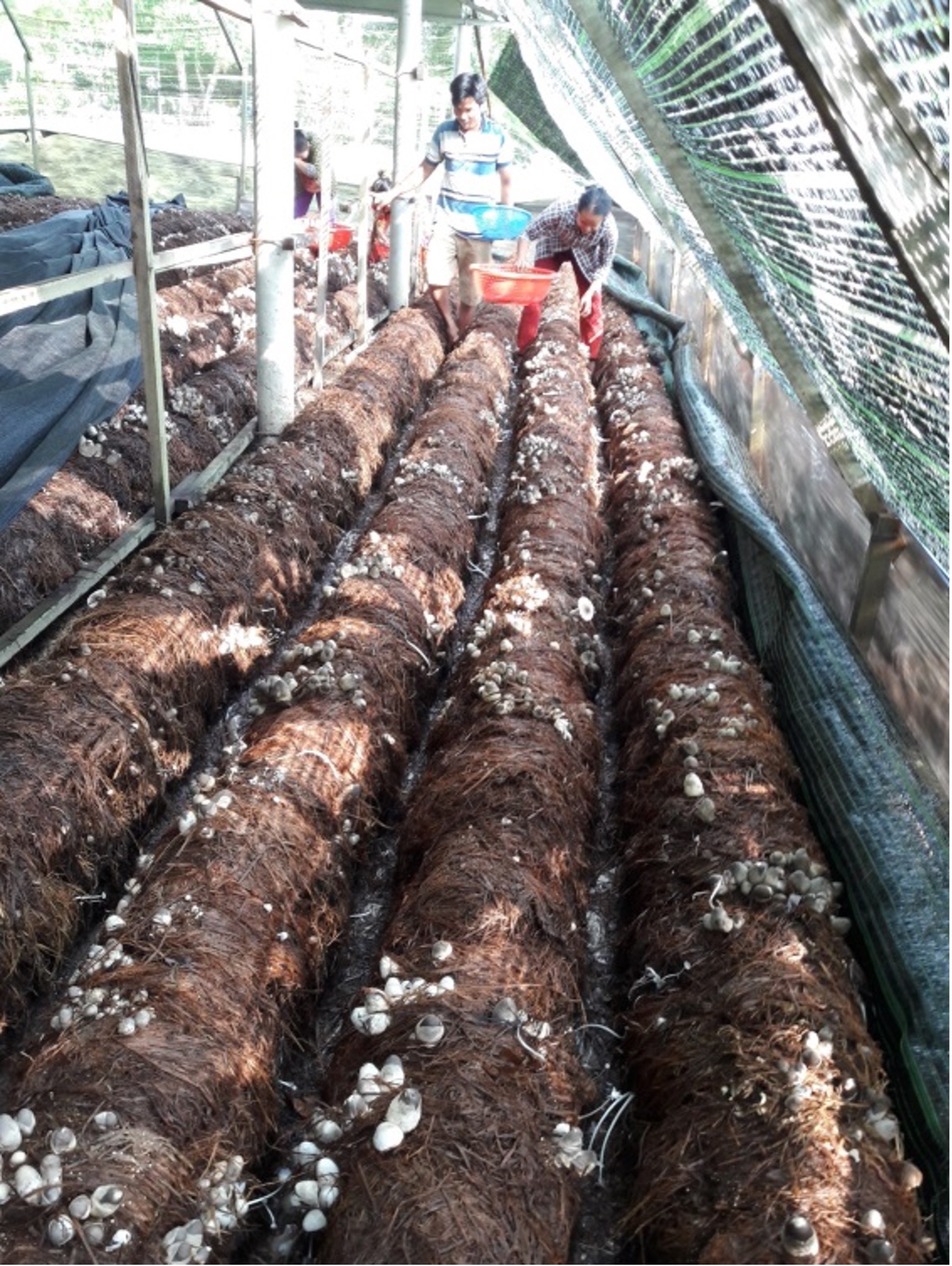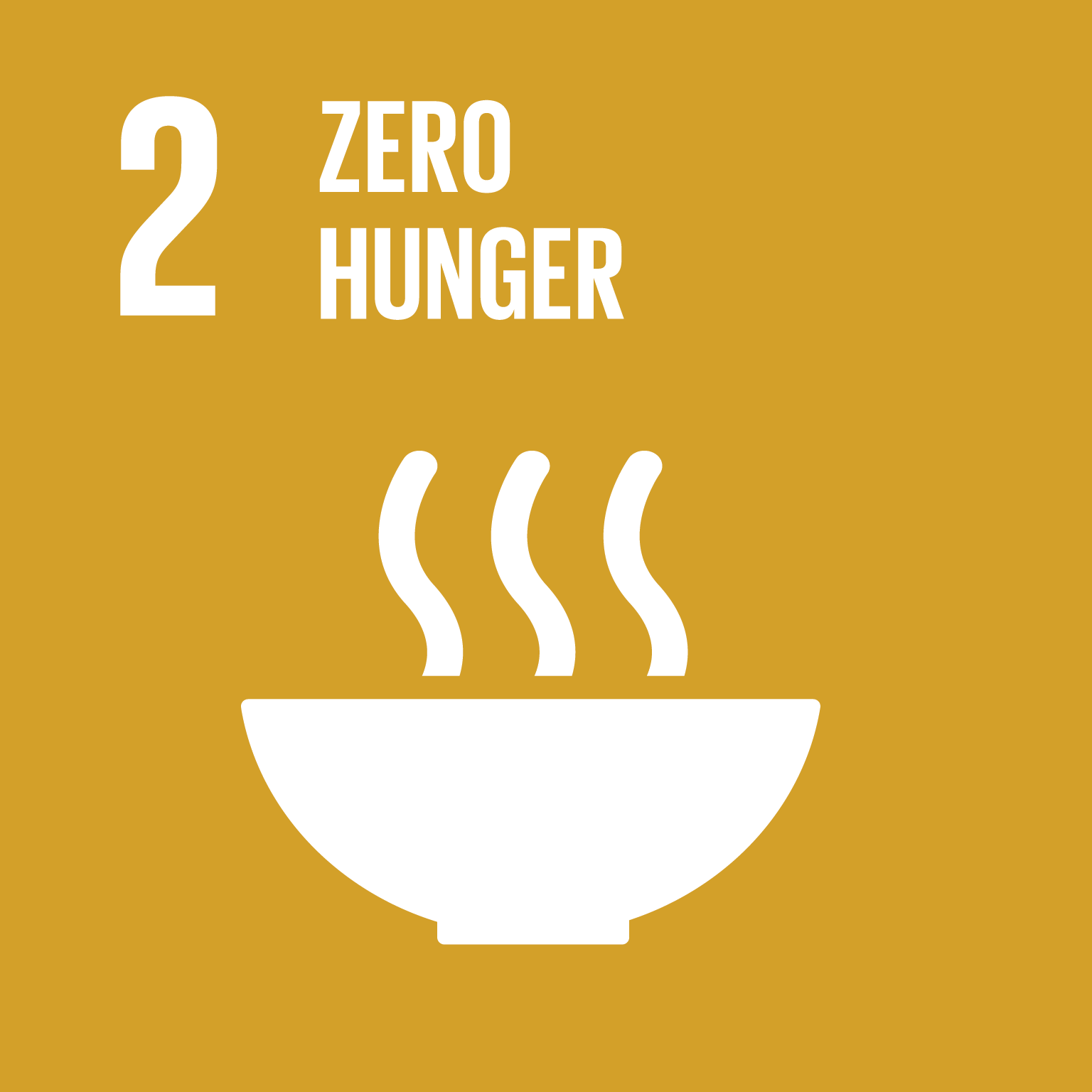 Sustainable Agricultural Mechanization for Integrated and Climate-smart Straw Residue Management
South-South and Triangular Cooperation to promote mechanization-based solutions for integrated and climate-smart management of straw residue
Sustainable Agricultural Mechanization for Integrated and Climate-smart Straw Residue Management
South-South and Triangular Cooperation to promote mechanization-based solutions for integrated and climate-smart management of straw residue

Challenges
The burning of straw residue after crop harvesting is a common concern, including in many Least Developed Countries (LDCs) like Cambodia and Nepal. Apart from accelerated greenhouse gas emissions and air pollution, straw burning causes loss of soil carbon and micro-nutrients in the long term, while adversely affecting soil temperature, pH, moisture, organic matter and agricultural production and farmers’ income. In order to address its adverse impacts, various approaches are being applied to sustainably utilize straw as fertilizer, fodder, base material and so forth. LDCs like Cambodia are also actively promoting conservation agriculture in which maintaining a permanent soil cover is an important agenda. However, the lack of suitable agricultural machinery is one of the main constraints. There is hence a need to test integrated straw utilization models through enhanced application of machinery in specific country contexts, and scale-up the innovative approaches identified via South-South and triangular cooperation.
Towards a Solution
The Centre for Sustainable Agricultural Mechanization (CSAM) of the United Nations Economic and Social Commission for Asia and the Pacific (ESCAP), with the support of ESCAP’s Environment and Development Division, is implementing the Regional Pilot Project on Mechanization Solutions for Integrated Management of Straw Residue in Asia and the Pacific to identify, test and promote an integrated model of straw management using agricultural machinery. The model contributes to relevant targets under SDG 2 (Zero Hunger) as well as SDG 1 (No Poverty), SDG 12 (Sustainable Production and Consumption) and SDG 13 (Climate Action), while addressing Priority 2 of IPoA (agriculture, food security and rural development).
Since launching the project in 2018, positive results have been obtained from the initial pilot countries (China and Viet Nam). The regional initiative has now leveraged the South-South and Triangular Cooperation modality and successfully secured additional donor funding to expand coverage to two LDCs (Cambodia and Nepal) in addition to Indonesia.
Prior to the launch of the Regional Pilot Project, CSAM provided preparatory support to Cambodia by co-organizing a regional workshop on mechanization for conservation agriculture 1 (in 2018 in Phnom Penh), followed by regional training2 (in 2019 in Siem Reap) which highlighted the importance of permanent soil cover maintenance and crop residue management in the context of crop residue burning. Among the key outcomes of the training was the collaboration between international partners and the General Directorate of Agriculture of the Ministry of Agriculture, Forestry and Fisheries of Cambodia for the introduction and demonstration of an eco-friendly planter from India in Cambodia, namely the Happy Seeder. This was an important step towards promoting sustainable crop residue management in Cambodia through South-South cooperation.
The Regional Pilot Project has identified and tested a model to utilize straw as fertilizer, fodder, base material (e.g., for mushroom growing) and clean energy production in a circular manner to apply to the farming-livestock system while customizing the model for specific local conditions. The pilot in China is being implemented in Laixi in the Shandong Province in collaboration with China Agricultural University, local government agencies and a local farmer cooperative, while in Viet Nam the pilot has been implemented in Can Tho City in collaboration with the Sub-Institute of Agricultural Engineering and Post-Harvest Technology and local farmers. The main activities - including field experiments involving agricultural machinery, data collection and analysis, optimization of the machinery and technical patterns, and training for local farmers - have contributed to improving current practices and have provided an alternative to straw residue burning, thus supporting climate-smart agriculture. For instance, as of August 2021, the pilot in China has demonstrated the following ecological and economic benefits:
- 72 tons of wheat straw and 99 tons of maize straw were utilized as fertilizer rather than burning away last year at the 10-ha pilot site, thus successfully reducing an estimated 220 tons of carbon dioxide emission;
- Over the same period, in comparison to the pre-intervention levels in 2018, maize and wheat yield increased by 509 kg/ha and 1,300 kg/ha, respectively, while the net income of the farmer cooperative under the various technical patterns increased by up to US$ 602/ha;
- Soil Organic Matter increased from 2.1 per cent in 2018 to 2.24 per cent in 2021.
The good practices of the pilot in China were reported by the China Central Television (CCTV) in 2020. The Regional Pilot Project has also engaged India as a knowledge-sharing partner, where a regional study tour was organized in 2019 to demonstrate best practices and technologies for crop residue management to participants from Cambodia, Nepal and other countries.
The notable outcomes of the Regional Pilot Project, including sharing of good practices and knowledge among the pilot countries as well as Cambodia, Indonesia, Nepal, and India, have contributed to an integrated approach, with evidence-based project design that emphasizes effectiveness and sustainability, and mutual learning.
Building upon its success and positive results, as noted above, the Regional Pilot Project is now being expanded to two LDCs (Cambodia and Nepal) and Indonesia in 2021 with funding support from China, embodying the spirit of South-South cooperation. The initiative will sustain its outcomes by mainstreaming the integrated model of straw management by engaging pilot country partners and decision-makers, as well as testing and replicating the model in varied contexts and sub-regions, with a particular emphasis on LDCs.
Contact Information
Countries involved
Supported by
Implementing Entities
Project Status
Project Period
URL of the practice
Primary SDG
Secondary SDGs
Similar Solutions
| NAME OF SOLUTION | Countries | SDG | Project Status | |
|---|---|---|---|---|
Accelerating the Transformational Shift to a Low-Carbon Economy in Mauritius Towards supplying 35 percent of the country’s energy needs with renewables by 2025 |
Cambodia, China, India, Indonesia, Nepal, Viet Nam | 05 - Gender Equality 09 - Industry, Innovation and Infrastructure 13 - Climate Action | Ongoing | View Details |
Accelerator Labs Network Following collective intelligence methods to address emerging sustainability challenges and the growing demand for local solutions |
Cambodia, China, India, Indonesia, Nepal, Viet Nam | 08 - Decent Work and Economic Growth 13 - Climate Action | Ongoing | View Details |
Accessibility of Financial Services and the Private Sector in Africa Maximizing the impact of financial cooperation on economic development and industrialization in Africa |
Cambodia, China, India, Indonesia, Nepal, Viet Nam | 08 - Decent Work and Economic Growth | Completed | View Details |
Adaptation for Smallholder Agriculture Programme Establishing better working conditions for smallholder farmers through the use of good practices and new technologies |
Cambodia, China, India, Indonesia, Nepal, Viet Nam | 08 - Decent Work and Economic Growth 11 - Sustainable Cities and Communities 13 - Climate Action 15 - Life on Land | Ongoing | View Details |
Adaptation of 3PA to Urban and Displacement Settings Using South-South and Triangular Cooperation in World Food Programme Three-Pronged Approach capacity strengthening through cross-learning initiatives |
Cambodia, China, India, Indonesia, Nepal, Viet Nam | 02 - Zero Hunger | Completed | View Details |
